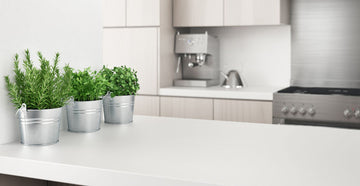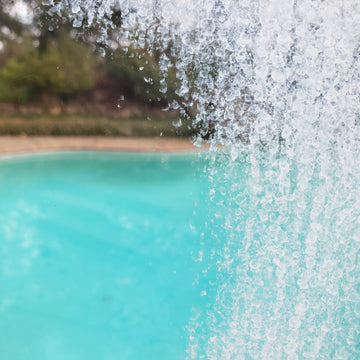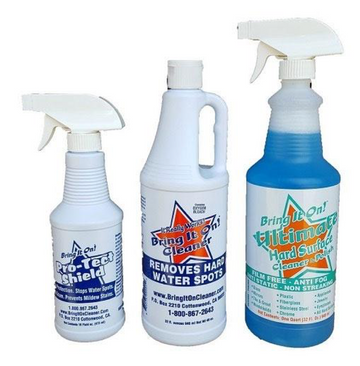Maintaining clean kitchen counters isn't merely a nod to tidiness—it's a crucial part of overall household hygiene. This comprehensive guide will discuss the best ways to clean kitchen counters, keeping them spotless and sparkling, no matter what they're made of.
Understanding Your Kitchen Counter Material
Before you break out the sponges and soap, it's important to know what your countertops are made from. Different materials, whether it's granite, quartz, laminate, stainless steel, marble, or butcher block, have distinct properties that dictate their care instructions.
General Cleaning Guide
To keep your counters clean, follow these general steps suitable for most counter materials. First, remove any crumbs or debris. Then, using a soft microfiber cloth, clean the surface with warm soapy water or an appropriate cleaner. Always dry the counter after cleaning to prevent water stains and build-up.

Cleaning Specific Counter Materials
Different countertop materials require specific cleaning methods:
- Granite: Use warm, soapy water for daily cleaning. Avoid harsh cleaners that can damage the sealant. For stains, a baking soda and water paste may work. Always rinse and dry after cleaning.
- Quartz: Non-abrasive cleaners are best for quartz. Scrub gently using a soft cloth. Again, ensure you dry the countertop after cleaning to prevent water spots.
- Laminate: You can use a mild household detergent or baking soda for tougher stains. Rinse thoroughly to remove any residue.
- Stainless Steel: Use a mild detergent with warm water. To polish, try a little vinegar for cleaning. Always dry stainless steel to prevent water spots and streaks.
- Marble: Only use cleaners specifically designed for stone. Acidic cleaners, including vinegar, can etch the surface.
- Butcher Block: Clean with mild dish soap, then rinse and dry thoroughly. Regularly applying mineral oil can help keep the wood from drying out and cracking.

Dealing with Stains and Scratches
Different types of stains may require unique treatments. For example, hydrogen peroxide is often effective on stains on stone counters, while a paste of baking soda and water can help with laminate counters. Carefully removing stains can keep your countertops looking their best. Likewise, scratches should be addressed according to the manufacturer's instructions.
Preventive Measures and Maintenance Tips
Avoid damaging your counters by using cutting boards, trivets for hot pans, and wiping up spills promptly. Regular maintenance, including sealing stone surfaces as recommended, can help extend the life of your counters.
Natural vs. Chemical Cleaners
Choosing between natural and chemical cleaners often depends on your personal preference, the counter material, and the nature of the grime or stain. Natural cleaners like vinegar and lemon juice can be great for general cleaning and shine, but tougher grime or certain stains might require commercial cleaners.

Conclusion
In conclusion, keep your kitchen counters shining with these expert cleaning tips. Regular cleaning and proper maintenance will not only keep your kitchen looking its best, but it will also extend the life of your counters. By understanding your countertop material and treating it properly, you can ensure that your kitchen remains the heart of your home, clean, inviting, and ready for anything.
Frequently Asked Questions
How can I prevent scratches on my kitchen counters?
Use cutting boards when chopping and trivets for hot pans to protect your counters from scratches and heat damage.
What's a good natural cleaner for stainless steel counters?
Vinegar can be used to clean and polish stainless steel counters.
Can I use commercial cleaners on quartz counters?
Yes, but they should be non-abrasive to avoid scratching the surface.
How do I maintain my butcher block counters?
Clean with mild dish soap, then rinse and dry thoroughly. Regularly apply mineral oil to prevent the wood from drying and cracking.





